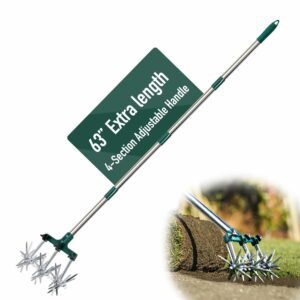Small Claims Court in the UK: How to Take Legal Action Without a Lawyer
If you’ve been let down by a company, overcharged, or never received a service you paid for, you might be entitled to justice through the Small Claims Court. It’s designed to help ordinary people resolve disputes quickly and affordably—without needing a solicitor.
This guide explains how the UK Small Claims Court works, who can use it, how to file a claim, and when to involve your bank if things go wrong.
What Is the Small Claims Court in the UK?
The Small Claims Court isn’t a separate court—it’s a process within the County Court system for dealing with low-value civil disputes, typically involving claims under £10,000 in England and Wales.
It is designed to be:
-
Low-cost (with capped fees)
-
Accessible (no legal experience needed)
-
Efficient (usually settled in writing or short hearings)
When Should You Use the Small Claims Court?
Common reasons for making a small claim include:
-
You paid for goods or services that were never delivered
-
Items were faulty and the seller refused to refund
-
A builder or contractor did poor-quality work
-
Refunds were denied without valid reason
-
A bank or business overcharged you or broke contract terms
You should only proceed to court if:
-
You’ve tried to resolve the issue directly
-
You’ve given the other party a chance to respond
-
You’ve gathered clear evidence of your claim
What Is the Claim Limit?
The small claims limit in England and Wales is £10,000. In Scotland, the limit is £5,000, and in Northern Ireland, it’s £3,000.
For amounts above this, a claim may fall under the fast track or multi-track processes, which can involve higher costs and formal legal procedures.
Step-by-Step: How to Start a Small Claim
1. Try to Resolve the Dispute First
Send a formal complaint letter or email explaining:
-
What went wrong
-
What resolution you want (e.g. refund)
-
A deadline for their response (usually 14 days)
This is called a Letter Before Claim, and it’s a legal requirement before going to court.
2. Gather Your Evidence
Your claim will only succeed if you have proof. Collect:
-
Receipts and invoices
-
Bank statements or card payment logs
-
Emails, text messages or letters
-
Photos of faulty goods or poor service
-
Witness statements (if applicable)
3. Make a Claim Online
Go to the official government portal:
👉 Make a Money Claim Online – GOV.UK
You’ll need:
-
The name and address of the person or business you’re claiming from
-
Details of what happened
-
The amount you’re claiming
-
Payment for the court fee (based on claim amount)
Table: Small Claims Court Fees in England and Wales
| Claim Amount | Online Claim Fee | Paper Claim Fee |
|---|---|---|
| Up to £300 | £35 | £50 |
| £300.01 to £500 | £50 | £70 |
| £500.01 to £1,000 | £70 | £80 |
| £1,000.01 to £1,500 | £80 | £115 |
| £1,500.01 to £3,000 | £115 | £165 |
| £3,000.01 to £5,000 | £205 | £255 |
| £5,000.01 to £10,000 | £455 | £410 |
Note: Fees are non-refundable unless you win your case and recover them as part of the judgment.
What Happens After You Submit a Claim?
-
The other party is notified and given 14 days to respond.
-
They can either:
-
Accept and pay
-
Dispute the claim
-
Make a counterclaim
-
-
If disputed, the court may ask for more info or set a hearing date.
-
A judge reviews the case (in writing or via a short in-person hearing).
-
You receive a decision. If successful, the judge may award:
-
The amount claimed
-
Court fees
-
Interest (at 8% annually)
-
Can You Recover Your Legal Costs?
In small claims, legal costs are not usually recoverable—even if you win—unless:
-
The other party behaved unreasonably
-
You paid for expert reports (with court approval)
This is why most people represent themselves, which is perfectly acceptable and often effective.
Can You Claim Against a UK Bank?
Yes. You can use the Small Claims Court to recover money from a bank if:
-
You were charged unfair fees
-
They failed to uphold their contract
-
Your Section 75 or chargeback request was wrongly rejected
-
They failed to refund a fraudulent or cancelled payment
Before claiming, follow your bank’s complaints procedure. If they don’t respond or reject your claim, escalate it to the Financial Ombudsman first—this is free and faster than court.
Banks you can take to court include:
-
Barclays
-
HSBC
-
Santander
-
NatWest
-
TSB
-
Lloyds Bank
What If the Other Party Doesn’t Pay After Losing?
If you win but the defendant refuses to pay, you can enforce the judgment through:
-
Bailiffs (enforcement officers)
-
Attachment of earnings (money taken from their salary)
-
Charging order (against their property)
You’ll need to pay additional fees for enforcement, but these can be added to the total debt they owe.
Pros and Cons of Using the Small Claims Court
| Pros | Cons |
|---|---|
| Low-cost way to recover money | Upfront court fees |
| No need for a lawyer | Time-consuming process |
| Encourages businesses to settle early | May not recover legal fees |
| Legally enforceable outcome | Not suitable for complex or high-value disputes |
Top Tips to Win Your Case
-
Be polite and professional in all correspondence
-
Stick to facts, not emotions
-
Keep a clear timeline of events
-
Organise your documents and label them
-
Use witnesses or expert quotes if available
-
Be clear about what you want: Refund? Replacement? Compensation?
When Not to Use the Small Claims Court
You may want to avoid court if:
-
The value is very low (under £100) and not worth the fee
-
You have no written or visual proof
-
The defendant is overseas (unless based in the UK)
Try resolving disputes using mediation or via the Ombudsman where possible—it’s usually quicker and free.
Final Thoughts: Get Justice Without Breaking the Bank
The UK Small Claims Court is a powerful tool for individuals seeking fairness from companies, tradespeople, or even banks. If someone owes you money or delivered poor service, you don’t have to let it go.
By knowing your rights, preparing your evidence, and following the right process, you can make a successful claim—often without needing a solicitor.
Remember: justice is accessible, even without deep pockets.
 Swan SD6060N 1.5 litre Stainless Steel Fryer with Viewing Window, Non-Stick Coating for Easy Cleaning and Adjustable Thermostat with Indicator Light, Detachable Basket Handle, 900W, Silver
Swan SD6060N 1.5 litre Stainless Steel Fryer with Viewing Window, Non-Stick Coating for Easy Cleaning and Adjustable Thermostat with Indicator Light, Detachable Basket Handle, 900W, Silver  Sage - The Custom Loaf - Bread Maker, Brushed Stainless Steel
Sage - The Custom Loaf - Bread Maker, Brushed Stainless Steel  Russell Hobbs Kettle, retro red, 1.7 l, 2400 W, quick cooking function, water temperature display in retro design, filling level marking, optimised pouring spout, vintage 21670-70
Russell Hobbs Kettle, retro red, 1.7 l, 2400 W, quick cooking function, water temperature display in retro design, filling level marking, optimised pouring spout, vintage 21670-70  Sensio Home Personal Blender Smoothie Maker - BPA Free 1L Jar & 600ml Portable Sports Bottle, Electric Blender for Fruit, Vegetables, Protein Shakes, Crush Ice & Frozen Fruit, 2 Speed + Pulse 350W
Sensio Home Personal Blender Smoothie Maker - BPA Free 1L Jar & 600ml Portable Sports Bottle, Electric Blender for Fruit, Vegetables, Protein Shakes, Crush Ice & Frozen Fruit, 2 Speed + Pulse 350W  Russell Hobbs Honeycomb Electric 1.7L Cordless Kettle (Fast Boil 3KW, Grey premium plastic, matt & high gloss finish, Removable washable anti-scale filter, Push button lid, Perfect pour spout) 26053
Russell Hobbs Honeycomb Electric 1.7L Cordless Kettle (Fast Boil 3KW, Grey premium plastic, matt & high gloss finish, Removable washable anti-scale filter, Push button lid, Perfect pour spout) 26053  Rolling Kitchen Island Cart with Solid Wood Countertop Spice Rack and Wheels Portable Kitchen Cart (1 Piece)
Rolling Kitchen Island Cart with Solid Wood Countertop Spice Rack and Wheels Portable Kitchen Cart (1 Piece)  150FT Expandable Flexible Garden Hose with 7 Setting Professional Water Spray Nozzle
150FT Expandable Flexible Garden Hose with 7 Setting Professional Water Spray Nozzle  Swan SK14610FUS Nordic Cordless Jug Kettle with Fast Boil Technology, Overheat Protection, Soft Touch Handle, 1.7L, 3KW, Fuchsia Rose, Fusia
Swan SK14610FUS Nordic Cordless Jug Kettle with Fast Boil Technology, Overheat Protection, Soft Touch Handle, 1.7L, 3KW, Fuchsia Rose, Fusia  Salter EK3131 Espressimo Coffee Machine – 4-Shot Espresso Maker, Milk Frothing Wand, Includes 240 ml Glass Carafe, Barista Style Latte And Cappuccino, 5-Bar Pressure, Stainless Steel Filter, 870W
Salter EK3131 Espressimo Coffee Machine – 4-Shot Espresso Maker, Milk Frothing Wand, Includes 240 ml Glass Carafe, Barista Style Latte And Cappuccino, 5-Bar Pressure, Stainless Steel Filter, 870W  Revel CCM104 Wet and Dry Grinder, Plastic, White/Green
Revel CCM104 Wet and Dry Grinder, Plastic, White/Green  Rotary Cultivator Set, 25"-63" Adjustable Gardening Rotary Tiller and Hand-Held Garden Cultivator Tool with Steel Detachable Tines, Reseeding Grass or Soil Mixing
Rotary Cultivator Set, 25"-63" Adjustable Gardening Rotary Tiller and Hand-Held Garden Cultivator Tool with Steel Detachable Tines, Reseeding Grass or Soil Mixing  Rainberg 122 x 38cm Folding Ironing Board with Jumbo Iron Rest, Adjustable Height Up To 93cm, Foldable & Collapsible Ironing Table (Black)
Rainberg 122 x 38cm Folding Ironing Board with Jumbo Iron Rest, Adjustable Height Up To 93cm, Foldable & Collapsible Ironing Table (Black)  AOUXIN 3 Piece Rattan Garden Furniture Set, Outdoor Sectional Sofa with Coffee Table, Black Wicker, White Cushions
AOUXIN 3 Piece Rattan Garden Furniture Set, Outdoor Sectional Sofa with Coffee Table, Black Wicker, White Cushions